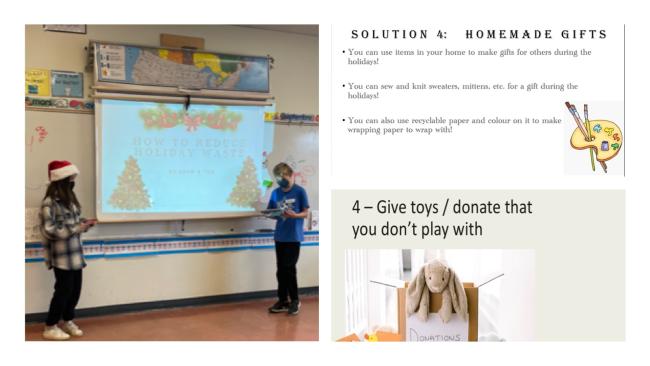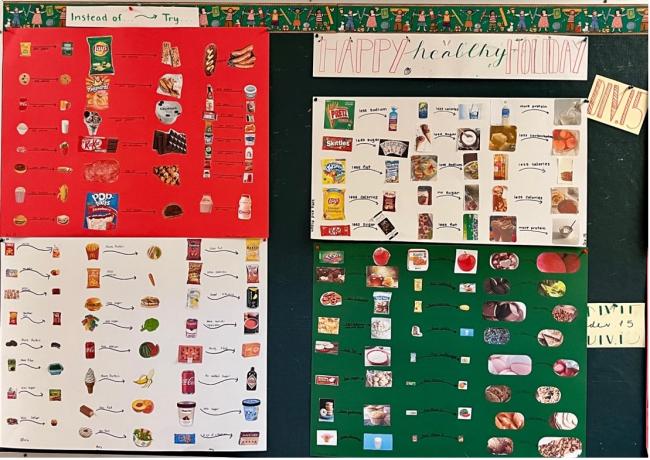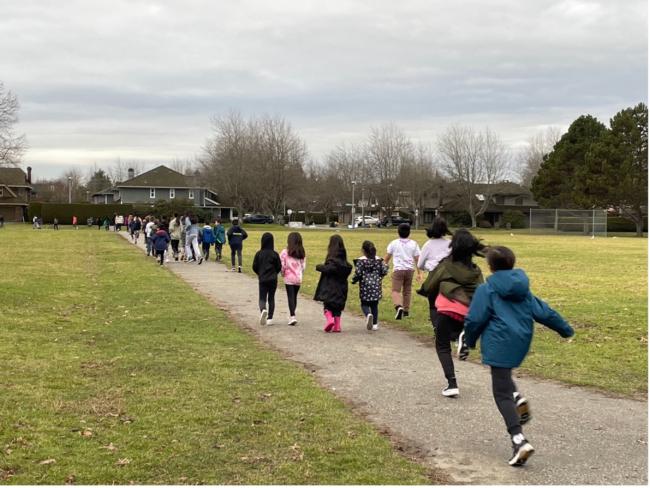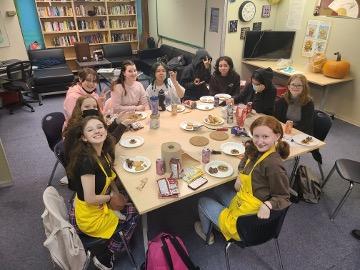A student-led organization advocating for climate action played a crucial role in planning and planting a Miyawaki Pocket Forest on their school grounds. To ensure the forest's upkeep, three classes were enlisted to help: a grade 5/6 class from a nearby elementary school, a Grade 11 Science for Citizens class, and a Studio Life Skills class. Together, they identified, measured, and photographed the forest as it grew over time.
The groups had already met a few times to collaborate and prepare for the forest's creation. They mulched, added compost, and labeled plants and trees prior to planting. The project's intergenerational learning component was essential to its success. The cross-grade project embraced the First Peoples Principle of Learning, which states that learning involves generational roles and responsibilities. The elementary school students brought their enthusiasm and interest, the Science for Citizens students brought their expertise in biology and technology, and the life skills students had the opportunity to work together and succeed as a team.
The project allowed students to develop a sense of place and connection to the land in their community. They now have a responsibility for the forest's wellbeing and have learned about proper plant care and land stewardship. In addition, they have a broader focus on improving biodiversity in urban areas. The positive impact of this project on students and their community cannot be overstated.



